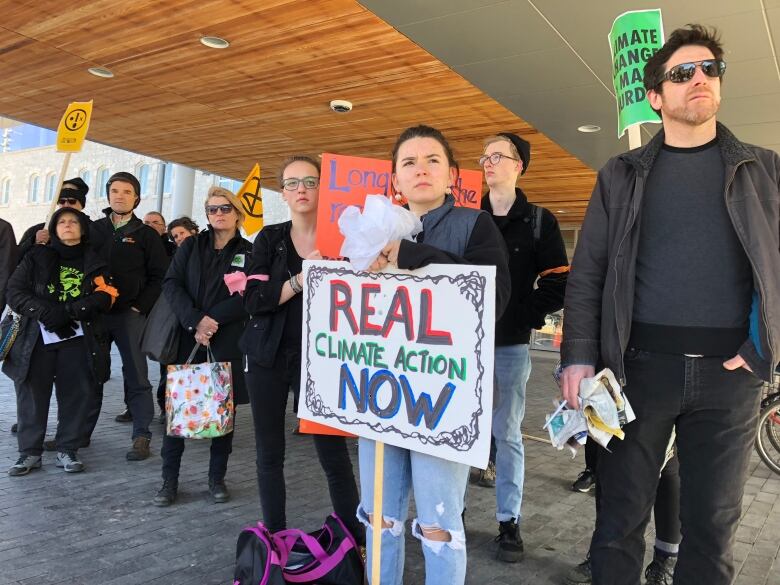Anxious about climate change? There's a support group for that
A Kitchener-based support group wants to help people avoid feeling overwhelmed about climate change

For those struggling with stress or anxiety related to climate change, a Kitchener support group offers "active hope," according to facilitator Tim Alamenciak.
The support group is hosting its fourth monthly meeting Wednesday evening at The Causerie.
Alamenciak, a former journalist turned biologist, took inspiration for the group from a book by Joanna Macy and Chris Johnstone.
The book, "Active Hope: How to Face the Mess We're in without Going Crazy," offers strategies for those dealing with eco-anxiety to remain resilient and empowered.
"I think it's helpful to process some of these really complicated feelings that people have," he said.
An issue too big for one person
Alamenciak says many of the group's participants struggle with helplessness, because of the magnitude of climate issues.
"We're at a moment now where science is telling us we absolutely have to act. But the problem is, the kind of action that's required is the whole of society action," said Alamenciak.
"For an individual who is concerned about this, who wants to make a difference, that can feel way too big."
Stephanie Rozek is the co-founder of The Causerie, where the monthly event is held. She believes the support group helps people feel more hopeful, because they see that others in the community share the same concerns.
"Realizing there are others who are out there, there are others who are doing things already, there are people that you can get knowledge from. I think it's so easy to get isolated in your own echo chamber," she says.
Gaining new perspectives

Alamenciak says the group attracts individuals of all age groups and backgrounds. Some work in sectors related closely to environmentalism or agriculture; others are teachers and parents concerned for the future of the upcoming generation.
Participants often say they struggle with guilt about not doing enough to reduce their environmental impact, he says. The meetings allow people to share ideas on how to take action, and help quell feelings of inadequacy.
"People who are starting to feel a little tired, find a little bit of relief in connecting with others and seeing their actions are not alone and they also may have a broader impact."
Rozek says that the group is going to be held as long as there is interest. She has also received suggestions for future groups, such as petition writing circles, from those who have attended and want to take the next step into activism.